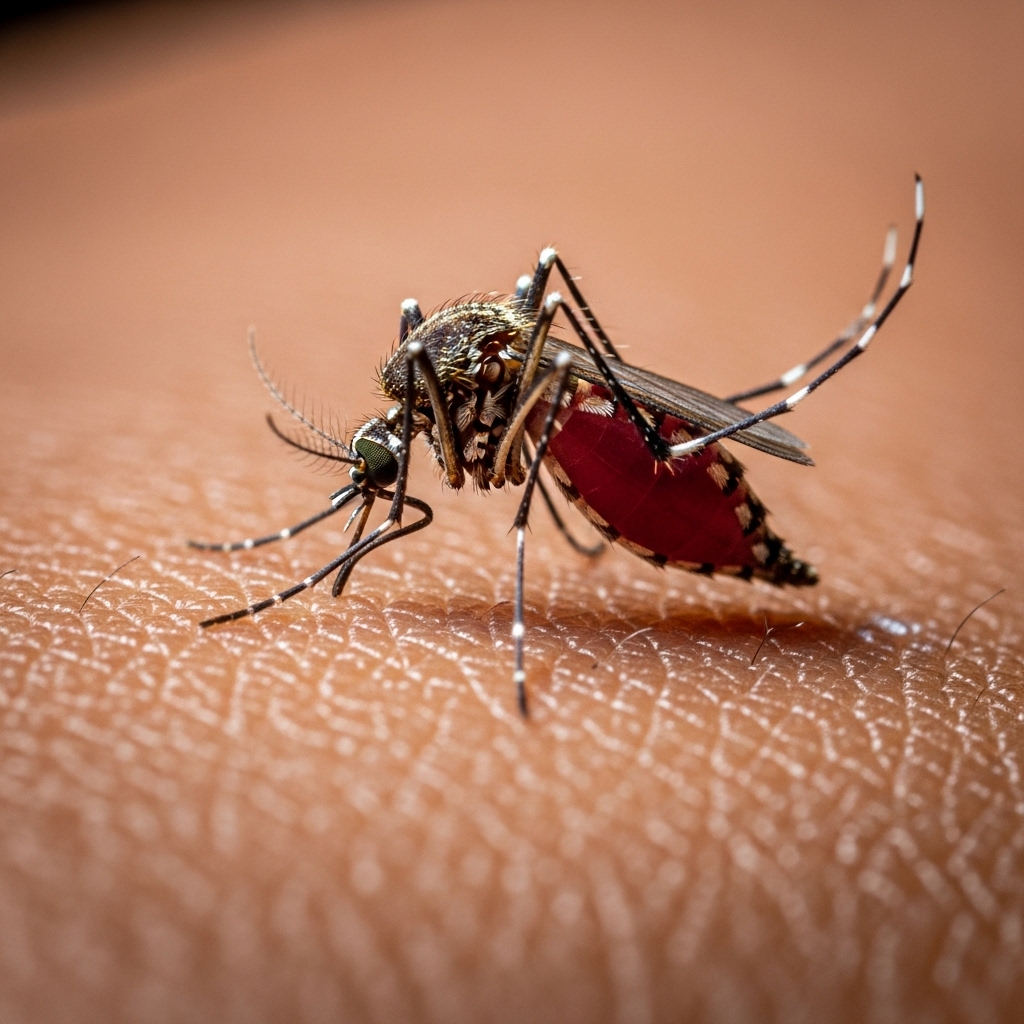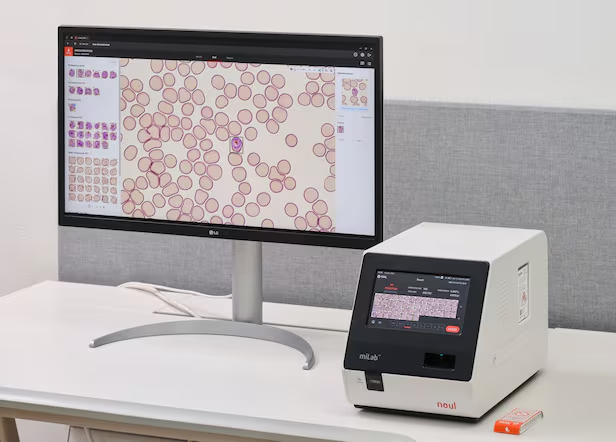Ghana’s battle against malaria has entered a new chapter as domestic medical device manufacturer Noeul sealed a contract to deliver its AI-based malaria diagnostic solution, miLab™ MAL, to the country over the next two years. Valued at approximately $975,000 (1.36 billion won), the agreement underscores Ghana’s commitment to leveraging cutting-edge technology in its efforts to reduce malaria’s heavy toll on public health.
Malaria remains one of Ghana’s most pressing health challenges, with the nation reporting an estimated 6.55 million cases and around 11,000 deaths in 2023. Traditional microscopy, while widespread, can suffer from inconsistencies in sensitivity and specificity depending on the technician’s expertise and workload.
In this context, miLab™ MAL promises to revolutionize diagnostics by integrating specimen pretreatment, high-resolution image capture, AI-driven analysis, and result verification within a single, compact digital microscope platform. This end-to-end functionality offers the prospect of more accurate and efficient detection, reducing diagnostic delays and enabling prompt treatment
The performance credentials of miLab™ MAL have been rigorously validated through collaborative research with Labcorp, the largest diagnostic laboratory network in the United States. These studies demonstrated 100 percent sensitivity, specificity, and predictive values—metrics that surpass conventional

microscopy benchmarks and reflect the robustness of Noeul’s AI algorithms. A report from UNITAID under the World Health Organization further heralded miLab™ MAL as “the most advanced form of digital microscope platform integrating all functions of microscopic diagnosis,” cementing its status as a breakthrough in malaria detection technology. Noeul’s chief executive officer, Im Chan-yang, highlighted the strategic importance of the West African market to the company’s global expansion plans.

His remarks reflect a broader vision of positioning miLab™ MAL as a global standard for malaria diagnostics by demonstrating its real-world impact in high-burden settings such as Ghana.
“In West Africa, which accounts for one-third of global malaria, the growth momentum is increasing through public procurement and various partnerships. Neoul has established a solid position in the African market and will now accelerate penetration into Europe and North America while continuing to enhance the solution’s capabilities ”
Im Chan-yang
Under the terms of the contract, miLab™ MAL units will be gradually deployed to major health institutions and specialized malaria management hubs across Ghana through trusted local partners. This phased rollout is designed to ensure that laboratory technicians and clinicians receive comprehensive training on both the technical operation of the digital microscope and the interpretation of AI-generated results. By coupling advanced hardware with targeted capacity-building efforts, Noeul and its collaborators aim to embed sustainable diagnostic capabilities within Ghana’s healthcare infrastructure.
The introduction of miLab™ MAL in Ghana carries significant implications for the country’s malaria control strategy. Faster and more reliable diagnostics can enable healthcare providers to distinguish malaria from other febrile illnesses with greater confidence, reducing the risk of misdiagnosis and inappropriate treatment. Enhanced detection rates also support more accurate surveillance data, which in turn informs the allocation of resources such as insecticide-treated nets, insecticide spraying campaigns, and community health outreach.
As Ghana begins to integrate this next-generation diagnostic tool into its public health arsenal, stakeholders await early indicators of impact. Success in Ghana could serve as a model for other malaria-endemic nations in sub-Saharan Africa, illustrating how artificial intelligence and digital health platforms can bolster frontline capacities and accelerate progress toward the goal of malaria elimination.
With the first miLab™ MAL units set to arrive in coming months and Ghanaian laboratories primed for installation, the collaboration between Noeul and Ghana’s health sector represents a concrete step toward a future where every suspected malaria case is met with rapid, accurate diagnosis—and where AI-driven solutions transform disease control across the continent.
Source: Noeul exports AI malaria diagnostics to Ghana for 1.3 billion won – CHOSUNBIZ



